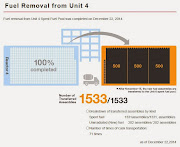He's often over the top even in the doom & gloom department, but he often has very curious information that I don't see anywhere else.
Banks Must Brace for New Losses by Jim Willie, CB. Editor, Hat Trick Letter April 16, 2009
Here are some points that caught my attention. I don't even know they are independently verifiable, but curious. (Do your own due diligence, always.)
- "A movement pervaded Lower Manhattan offices to formally call in all Citigroup shorted shares on loan. " - so that could be the reason why some investors/funds have been frantically covering (or trying to cover) their short positions in the past week or so...
- "Other ‘C’ share games were played that enabled preferred shares to serve as collateral on common share shorts, as the plebeian shares descended to $1/share value." - the hedge funds have been long preferred and short common on C and other commercial banks deemed vulnerable, that is somehow a known piece of information. But I didn't know that preferred shares were used as collateral. So then their common short was naked shorting?
- "The story behind the scenes that captured my attention centered on German demands to return all their gold bullion held in custodial accounts on US soil." ... [To cover the March physical delivery of gold] "Deutsche Bank saved the COMEX bacon with a last minute 850,000 ounce delivery, courtesy of the Euro Central Bank at the eleventh hour. " - no wonder Germans are nervous.



 Tokyo Time
Tokyo Time
![[Most Recent Quotes from www.kitco.com]](http://www.kitconet.com/charts/metals/gold/t24_au_en_usoz_2.gif)


